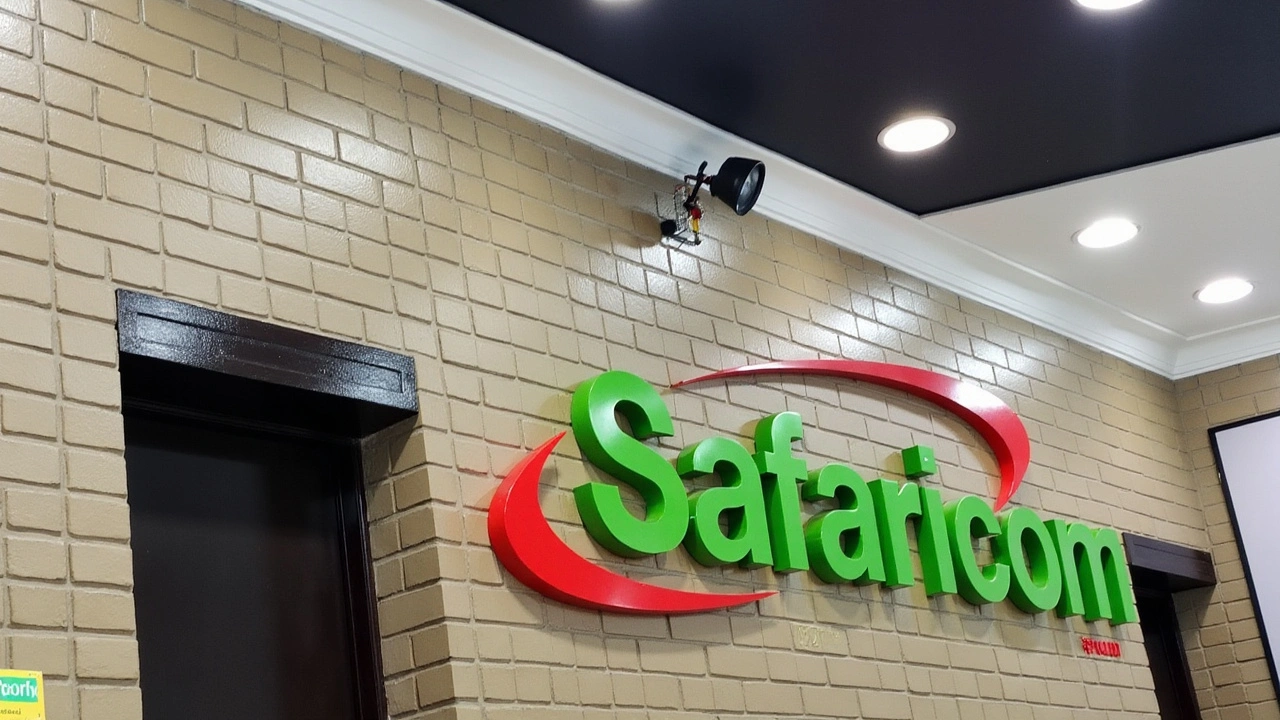Safaricom Reverses Controversial Call Charges Amid Legal Scrutiny and Public Outcry

Safaricom Reverses Controversial Call Charges Amid Legal Scrutiny and Public Outcry
In an unexpected yet welcomed turn of events, Safaricom, Kenya's leading telecommunications giant, has announced its decision to reverse the recently introduced call charges that sparked a wave of discontent among subscribers. The initial move to introduce these charges swiftly attracted severe criticism, legal actions, and a significant public outcry, compelling the company to reconsider its stance.
The controversy began when Safaricom rolled out a new policy that imposed call charges on subscribers who had previously enjoyed free calls. This sudden shift in policy caught many users off guard, leading to widespread backlash. Subscribers felt the charges were blatantly unjustified and a stark deviation from the company's commitment to customer-friendly services. The public outcry was accompanied by legal challenges, adding more pressure on the telecommunications giant to address the issue.
Peter Ndegwa, the CEO of Safaricom, responded to the mounting pressure with a public announcement stating the company's decision to reverse the call charges. Ndegwa emphasized that the move underscored Safaricom's dedication to customer satisfaction and its willingness to listen to feedback from its user base. His statement highlighted the company's core values of putting customers first and ensuring their grievances are promptly addressed.
The Role of Public Pressure and Legal Action
This reversal is more than just a corporate decision; it is a testament to the profound impact of public pressure and consumer advocacy. The quick and decisive response from Safaricom showcases the significant role that consumers play in shaping business practices. It also sends a powerful message to other corporations, emphasizing that customer feedback and satisfaction are paramount in maintaining a loyal customer base.
Legal action played a crucial role in the unfolding of this narrative. Consumer rights groups and individual subscribers took legal steps to challenge the new call charges, arguing that they were not only unfair but also potentially unlawful. The legal challenges added a layer of urgency for Safaricom to act swiftly. The combination of legal pressure and public discontent created a perfect storm that led to this pivotal corporate decision.
Impact on Consumer Rights and Corporate Policies
The reversal of call charges by Safaricom is being hailed as a significant victory for consumer rights. It highlights how proactive consumer advocacy and legal action can influence and alter corporate policies that negatively affect customers. This development is likely to embolden consumers to voice their concerns more assertively, knowing that collective action can lead to tangible changes.
Moreover, this incident underscores the importance of transparency and open communication between companies and their customers. For Safaricom, it is a reminder of the need to engage in thorough consultations and to consider subscriber feedback before implementing major policy changes. The episode provides valuable lessons for other telecom operators and businesses across different sectors about the critical role of consumer trust and the potential repercussions of disregarding public sentiment.
Safaricom's Commitment and Future Steps
In his announcement, Peter Ndegwa reaffirmed Safaricom's commitment to its subscribers, stating that the company would continue to prioritize customer needs and satisfaction. Moving forward, Safaricom plans to establish a more robust framework for engaging with its customers, ensuring that their voices are heard and incorporated into decision-making processes. This includes setting up platforms for regular feedback and enhancing customer service channels to address issues promptly and effectively.
The reinstatement of the free calls policy is expected to restore consumer trust and loyalty, which had taken a hit during the controversial period. Safaricom is also likely to review its internal policies to prevent a recurrence of such issues in the future. By doing so, the company aims to solidify its reputation as a customer-centric organization that values and respects its subscribers.
Conclusion
In conclusion, Safaricom's decision to reverse the call charges is a clear indication of the power of consumer advocacy and legal intervention in shaping corporate strategies. It serves as a pivotal moment in the ongoing discourse on consumer rights and corporate responsibility. As Safaricom moves forward, it will be crucial for the company to maintain transparency, engage with its customers, and uphold its commitment to providing top-notch services without compromising on customer satisfaction.
This development not only impacts the telecommunications sector in Kenya but also sets a precedent for other companies on the continent and worldwide. It highlights the importance of listening to customer feedback and being responsive to their needs, reinforcing the idea that the customer is indeed at the heart of any successful business.






Donny Evason
August 20, 2024 AT 20:53The reversal illustrates a vivid example of societal feedback loops reshaping corporate policy. It serves as a reminder that market participants are not merely passive consumers but active stakeholders. When a firm like Safaricom adjusts its stance, it validates the power of collective advocacy. The situation also highlights the importance of aligning business strategies with ethical considerations, something that transcends profit motives. Ultimately, this development could set a precedent for future engagements between corporations and the public.
Hariom Kumar
August 27, 2024 AT 11:13Great to see consumer voices win! 😊
Phillip Cullinane
September 3, 2024 AT 01:33From a regulatory compliance perspective, the Safaricom episode underscores the intricate interplay between consumer rights frameworks and telco operational mandates. The legal challenges invoked under the Consumer Protection Act invoke statutory obligations that extend beyond mere fee structures, touching on fairness, transparency, and non-discriminatory service provision. Stakeholder theory suggests that the firm’s fiduciary duty now must incorporate heightened attention to external constituencies, notably the electorate of users whose churn risk escalated exponentially as the charge policy was rolled out. Moreover, the market dynamics reveal a classic price elasticity shock; imposing fees on previously free services generated a negative cross-elasticity effect that amplified reputational risk. The subsequent legal injunctions acted as a catalyst for strategic realignment, compelling Safaricom to re-evaluate its revenue model in light of potential litigation costs and brand depreciation. In terms of corporate governance, board oversight committees should now integrate consumer sentiment analytics into their decision matrices, employing predictive modeling to anticipate backlash thresholds. This aligns with the emerging paradigm of ESG (Environmental, Social, Governance) integration, where social capital is quantified alongside financial performance metrics. The public outcry further illustrates the power of digital mobilization, where social media amplification can precipitate rapid regulatory response, effectively shortening the feedback loop between policy enactment and corrective action. Operationally, the reversal signals an impending overhaul of internal policy vetting processes, likely mandating multi-tiered scenario analysis and stakeholder impact assessments before any future pricing adjustments. It also presents an opportunity for Safaricom to leverage its extensive network infrastructure to deploy proactive communication channels, fostering a more transparent dialogue with its subscriber base. In conclusion, this incident serves as a case study in the necessity of aligning corporate strategy with holistic risk management, integrating legal, social, and economic vectors to sustain long-term viability.
Janie Siernos
September 9, 2024 AT 15:53It is unacceptable that a corporation would betray its social contract; such actions erode trust in the market. We must hold them accountable through rigorous oversight.
joy mukherjee
September 16, 2024 AT 06:13I really appreciate how quickly Safaricom responded to the community’s concerns-shows they’re listening. This kind of responsive governance can strengthen the bond between provider and user. It also sets a solid example for other operators facing similar feedback loops. Let’s hope they keep the lines of communication open moving forward. 😊
Rob Chapman
September 22, 2024 AT 20:33Phillip’s deep dive really captures the multifaceted nature of this issue and reminds us that corporate decisions are never made in a vacuum. It’s a great illustration of how legal, economic, and social considerations intersect. I think the key takeaway is that ongoing dialogue with users should be baked into strategic planning. When companies embed that mindset early, they can avoid costly reversals later.